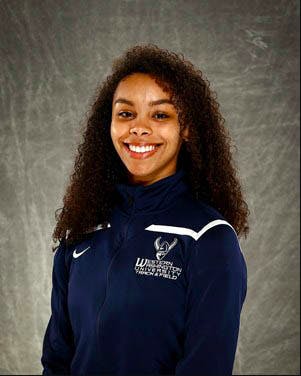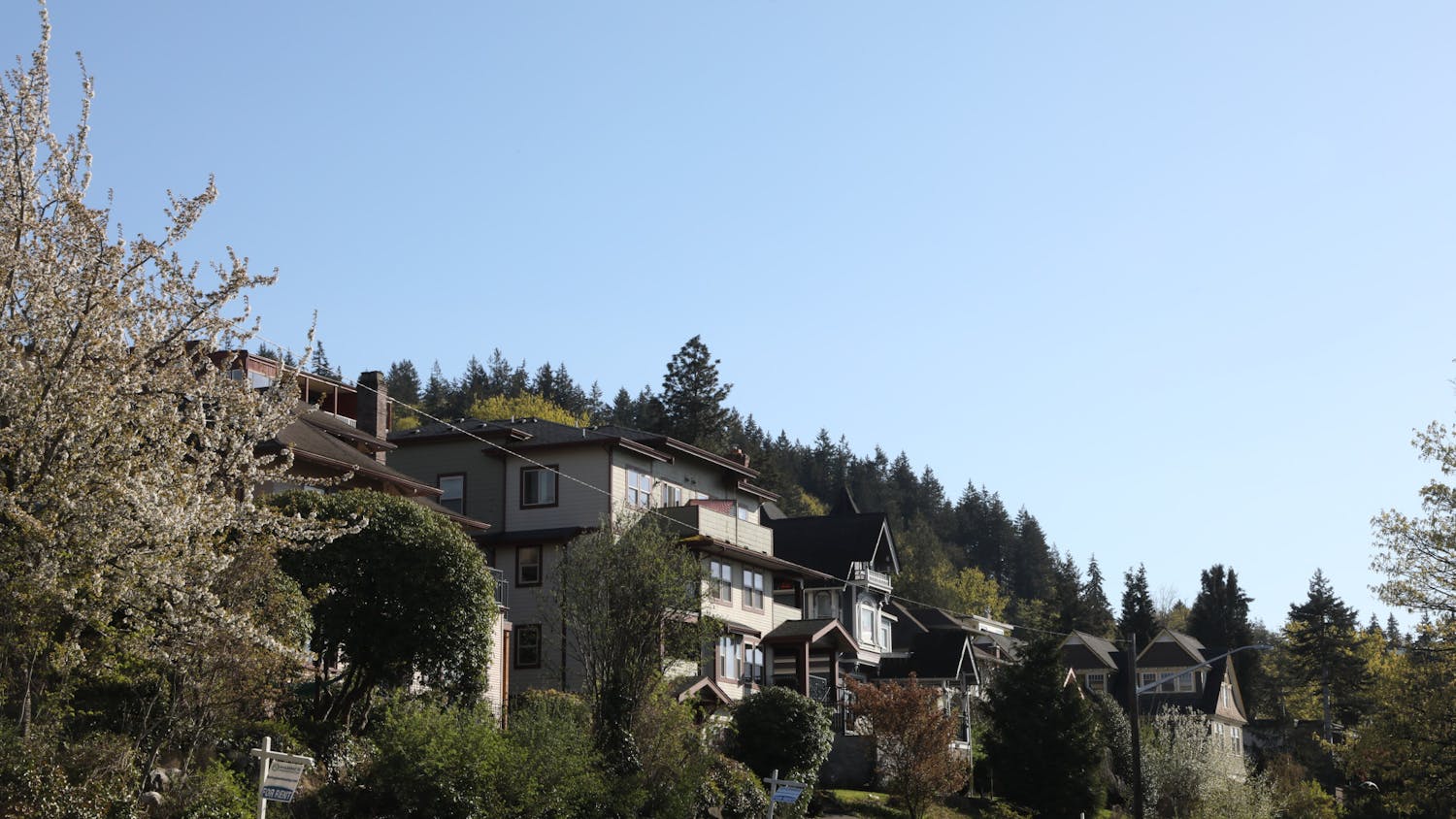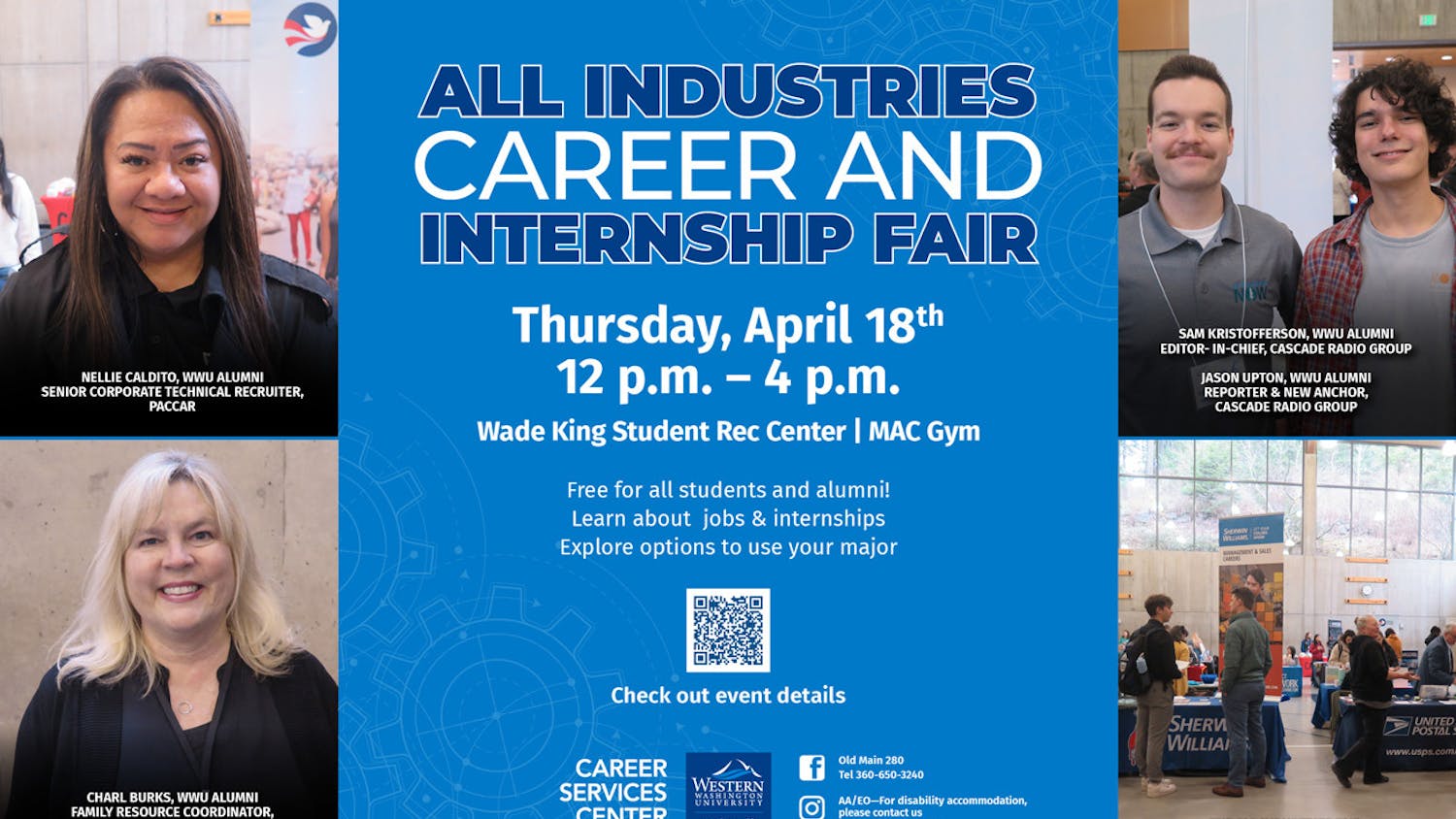
Western track and field multi-athlete Aliyah Dawkins was in Birmingham, Alabama, on March 12 when her coach, Pee Wee Halsell, knocked on her hotel door to deliver the news.
“‘I am very sorry,’” Dawkins said, recalling what Halsell told her. “‘But they just canceled the meet.’”
It was the first time she qualified for the NCAA Division II Indoor Track and Field Championships, set to go the next day.
Three months before, Dawkins had set hefty goals for herself before the season began, including wanting to jump 5 feet, 7 inches in the high jump and 17 feet, 3/4 inches in the long jump.
Dawkins’ teammate Leanne Kibbee, a second-year who competes in the same events, said training and competing with Dawkins has helped step up the pair’s game mentality.
“Being able to bounce off ideas about what we should do better and give each other little tips and advice throughout the meet, it’s just so, so helpful,” Kibbee said. “I could not imagine doing it without her.”
Dawkins did not have to wait long to accomplish one of her goals. In her season opener on Dec. 6, 2019, at the Candy Cane XII Open in Cheney, she jumped 18 feet, 2 1/4 inches in the long jump — a personal best, and 13 and a half inches longer than her goal.
“I jumped way farther than I even wanted to,” Dawkins said. “That just blew me out of the water, and I was like, ‘Well, if this is how I’m gonna start my year, I want to continue pushing my goals farther than that.’”
Almost two months passed before Dawkins competed again, this time at the University of Washington Invitational in Seattle.
In her second pentathlon of the season — a track and field event where athletes compete in five different events over the course of a one-day meet — Dawkins wanted to earn the NCAA Division II provisional mark of 3,277 points to qualify for nationals.
During the pentathlon, she surprised herself once again by jumping 5 feet, 7 3/4 inches in the high jump, another personal best.
Dawkins was told about athletes’ performance going down their freshman year compared to their high school performances, and although she did not come in with that mindset, her first season broke her down: She trained herself into a sprained ankle, and her marks suffered.
“My high school [personal record] for high jump is 5 feet, 6 inches, but I hadn’t jumped that since my junior year of high school, so I was really struggling with not mentally thinking that I could do that,” Dawkins said.
At the University of Washington Invitational, Dawkins set a new Western record for the women’s pentathlon of 3,310 points, previously held by Katie Reichert’s 3,144 point performance in 2013.
“I am very proud of myself for getting that record,” Dawkins said. “Being able to beat it, and seeing that I progressed far enough to where I was last year to here, that I could have a record like that, it has showed me that I can definitely compete at a collegiate level. The thought of being able to continuously break that record now is wild, like, I absolutely love that.”
Dawkins attributed her mental preparedness this season to spending more time working with the actual high jump bar instead of the bungees used to save time and prevent injuries during workouts.
Halsell said Dawkins succeeded in the objective he sets for all of his athletes — competing to the best of their ability.
But she was unable to match her personal best mark in the high jump during the remainder of the regular season. Dawkins said she spent a lot of time convincing herself that she deserved to go to the upcoming national championship.
“Because I have the ability to jump this mark,” Dawkins said. “I was like, ‘OK, I deserve this; this is going to be good.’ I had a really good pre-meet practice. I was confident again.”
But two hours after returning to her hotel room from the track in Alabama, the NCAA officially announced that all winter and spring championships were canceled.
“It was very emotional,” Dawkins said. “I cried because it was like I’d spent all this time telling myself that I deserved to be here, like, I made it, it’s going to be OK, it’s going to be a great meet, just for it to get canceled.”
Halsell said that it felt like a gut punch, or a hit on the chin when he found out about the cancellation via ESPN, following the cancellation of the NCAA basketball national championship tournaments.
“It was pretty tough,” Halsell said. “Not much I could do or we could do.”
Amid the heartbreak, Dawkins understood the reasoning behind the cancellation.
“COVID-19 is clearly a huge issue in our world right now and it’s just one thing I couldn’t control in the grand scheme of things,” she said.
Dawkins said it hurt even worse when she found out that the NCAA canceled the rest of the spring sports season.
“It kind of just hit me like a bunch of bricks at once,” she said.
While Dawkins said she was blown away by the NCAA canceling sports for the rest of the academic year, she was even more devastated for the seniors who are unable to finish their careers as Western Washington vikings.
“I wish there was something we could do to fix that for them,” Dawkins said.
Western fourth-year hurdler Cordell Cummings said he is still deciding whether to return for another year after the NCAA granted an additional season of eligibility for spring sports athletes.
“It’s a pretty tough one, as that’s a whole [other] year of school,” Cummings said.
Returning for another year of school doesn’t seem feasible for Cummings, who is preparing to enter the workforce after graduation, but he said he would be happy to finish the remainder of his fourth year as a viking.
Cumming said he encourages his teammates to stay connected and optimistic that they can begin training as a team again this fall.
“It’s been an awesome experience and program and coaching staff,” Cummings said. “It was the highlight of my college career and I had a great time.”
A month after the canceled national championship meet, Dawkins said she has focused on adapting to COVID-19’s impact on her life with distance learning, weird school and work schedules and no competitions to look forward to in the foreseeable future.
“Trying to find the motivation to get out there and do workouts in a way that still allow me to be safe and socially distant from people, and still getting in the correct amount of work,” Dawkins said. “My motivation for that is very hard to harness.”
Kibbee is in Seattle, where tracks and facilities are closed to the public.
“We have suggested workouts that our coaches have sent to all of us, which can be pretty difficult to do without a track,” Kibbee said. “I know a lot of us have been having to improvise on some of the things they’ve given us.”
Despite the improvised workouts such as hill runs in lieu of sprints, Kibbee remained optimistic.
“It’s definitely an adjustment, but still getting a lot done,” Kibbee said. “It’s kind of cool to be working out in a different way and in a different environment.”
Halsell said it is important to do something physical to take care of the mind and acknowledged students need to adjust to online learning and living at home with distractions.
“Hopefully they’re doing what they can to stay healthy,” Halsell said. “Everyone’s adjusting at the same time; don’t want to add stress to their lives.”
While Dawkins is uncertain when she will compete again, she believes hard work now will pay off when the time comes.
“If I just continue to work hard and put the same amount of effort that I did before everything happened, I will be way beyond where I was at the end of this last season,” Dawkins said.





